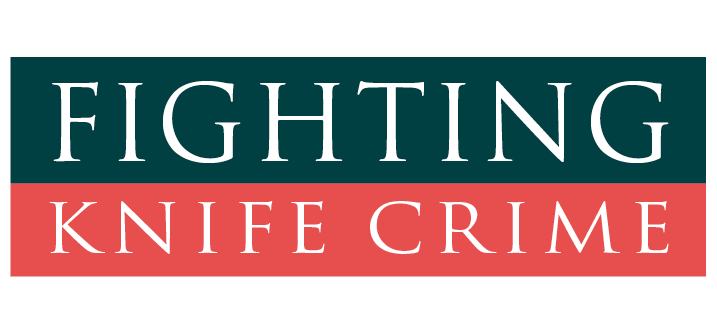
2021 ended with deaths in the capital reaching a disturbing new high, leaving lives and families devastated, and posing us all a big question for 2022. How should we respond? This 3rd edition of our online magazine offers practical solutions from real experts. I think you will find a strong consistent theme in the message they each send. We have contributions from two academics, a senior MP and Shadow Minister, contributions from the world of business, and from those in the front online of social reform. FKCL is now a powerful independent voice in concentrating the debate on what is required to effect real social change, whilst working with the grain of our partners in the voluntary sector, sports, arts, business, and in the NHS; and complementing the work of taxpayer-funded MOPAC, the London Violence Reduction Unit, and the Metropolitan Police. Without unrelenting commitment to this kind of collaboration reducing this death rate will be a pipedream. Social deprivation and unemployment are key drivers of youth violence. It is within our power to end this.
We have an important contribution from Chris Wright, the Chief Executive of Catch22, the social business driving public service reform, and the charitable leading arm for so many proactive projects, including our own, that work in this area offering high quality public services for communities all over the UK. He writes about the Creating Opportunities programme, and the lifeline that employment offers. He speaks about the accountability of the whole community - from businesses, to government, and charities, and asks some serious questions about the current level of investment and cooperative violence reduction schemes being administered at national and local governmental level.
Sarah Jones MP, Shadow Minister for Policing and the Fire Service, and Member of Parliament for Croydon Central writes in this edition. She kindly agreed to meet me in Westminster in November with Wes Streeting MP, now the shadow Health secretary, but then shadow secretary of State for Child Poverty, and before that for Education. The discussion we had really engaged the issues we all face. Sarah Jones MP is so well placed to write for us. The last day of 2022 brought 2 fatal stabbings. One young person's life ended in Croydon and the and another in the constituency of Boris Johnson MP, the Prime Minister. Never was there a stronger case for cross-party cooperation. Sarah argues here for a national mission for change. She was who founded the All-Parliamentary Group on Knife Crime. She has nothing to prove in terms of her commitment, and we are delighted that she has written for us. Editorially non-political, we are keen in the future to have contributions from the other senior party spokespersons.
Two of the country’s foremost criminologists have added their own perspectives in separate articles. Professor Peter Squires and Dr Elaine Williams, respectively from Brighton and from Greenwich universities, have just published their book “Rethinking Knife Crime” (see within), but here offer their own perspectives. Dr Elaine Williams points to economic inequality, questions the values of labels that concentrate only on knife related offending, writes about racial stereotyping, and insists that all children and their families should be able to live healthy, happy, and safe lives, within well-resourced communities. Peter Squires while welcoming the cultural change away from populist criminalisation strategies towards public health strategies for youth violence, here questions the level of funding and commitment to achieve sustainable reductions in violence reduction. All these important questions are asked by real experts in this field and should be heeded.
Dan Brown, the dynamic CEO and founder of the Positive Transformation Group (PTG) writes about his plans in conjunction with other major banks and corporates to reenergise huge areas of untapped labour opportunity, while raising millions for charitable projects along the way. He is the man to watch in the months ahead.
We also hear this time from Annette Brown, Head of Trust & Charitable projects at the PTG Trust. She is also an executive with Milbank LLP, and sets a personal example to all corporates, and organisations who care about community, and who are willing to step up and contribute to improve the lives of our young people.
Sue Scott-Horne is well known in the charitable sector for many things, not least her charity Let’s Get Talking. Here she highlights a series of failings and opportunities waiting to be seized in the way we address knife crime. She speaks as one with huge hands-on experience and must always be part of the conversation.
Since the last issue of our online magazine in September, FKCL has really started to make its mark. Articles such as these are part of the reason. Measured by the interest shown to those who write to me every day, to the requests that are coming in from media, and from a wide range of individuals who want to know more and help, we are getting it right, but will need to improve what we do. This last month has also been filled with opportunities to address groups of people, both online and in person, who are interested in finding answers to the societal and policy challenges that face us all. We at FKCL have much to learn from them all. Our purpose is to spread that learning.
Among educators, employers, community workers, the NHS, local and national government, and the press, there is a growing recognition of the value of a central resource like ours, and the intelligent contribution it tries to make to the debate on tackling youth violence and alienation. We aim to promote all that is being done across the capital by everyone who is working towards helping young people realise their potential and help them gain the respect they deserve. Collaboration lies at the heart of what we are doing. We are pleased to note that there is evidence now that the Home Office is increasingly recognising that a public health approach to drug taking, that drives so much youth violence, is an important step in the right direction. Our own article in this magazine edition from Professor Peter Squires is highly informative on this issue.
The combined research database we provide, administered by Dr Nadia Habashi alongside our team of web designers at Iconic Media Solutions Ltd, the information videos, the informed articles by leaders in the field, and the information we spread on social media relevant to our aims, are just part of our offer. We are always prepared to give and receive constructive criticism. We will work with anyone who has something useful to say, intends to act on that intention, and is committed to the same collaborative approach. Without this, there is little hope of the long-term reform required. The planning of our cities for the young, the building of employment opportunities for those left behind, and the trust we place in our police force and in law enforcement agencies are vital steps.
The practical support given to those who daily strive to help young people in our communities, alongside proper resourcing, is all key to progress. Like the building of our great Cathedrals, the transformation of our cities cannot be created in months or even years. It takes time and dedication, and often more than one generation. Things like trust, hope, commitment, and of course kindness take less time, but are the sure foundations of the long-term changes that are needed.

Please read what our contributors have to say and continue to encourage others who might make a difference too.
